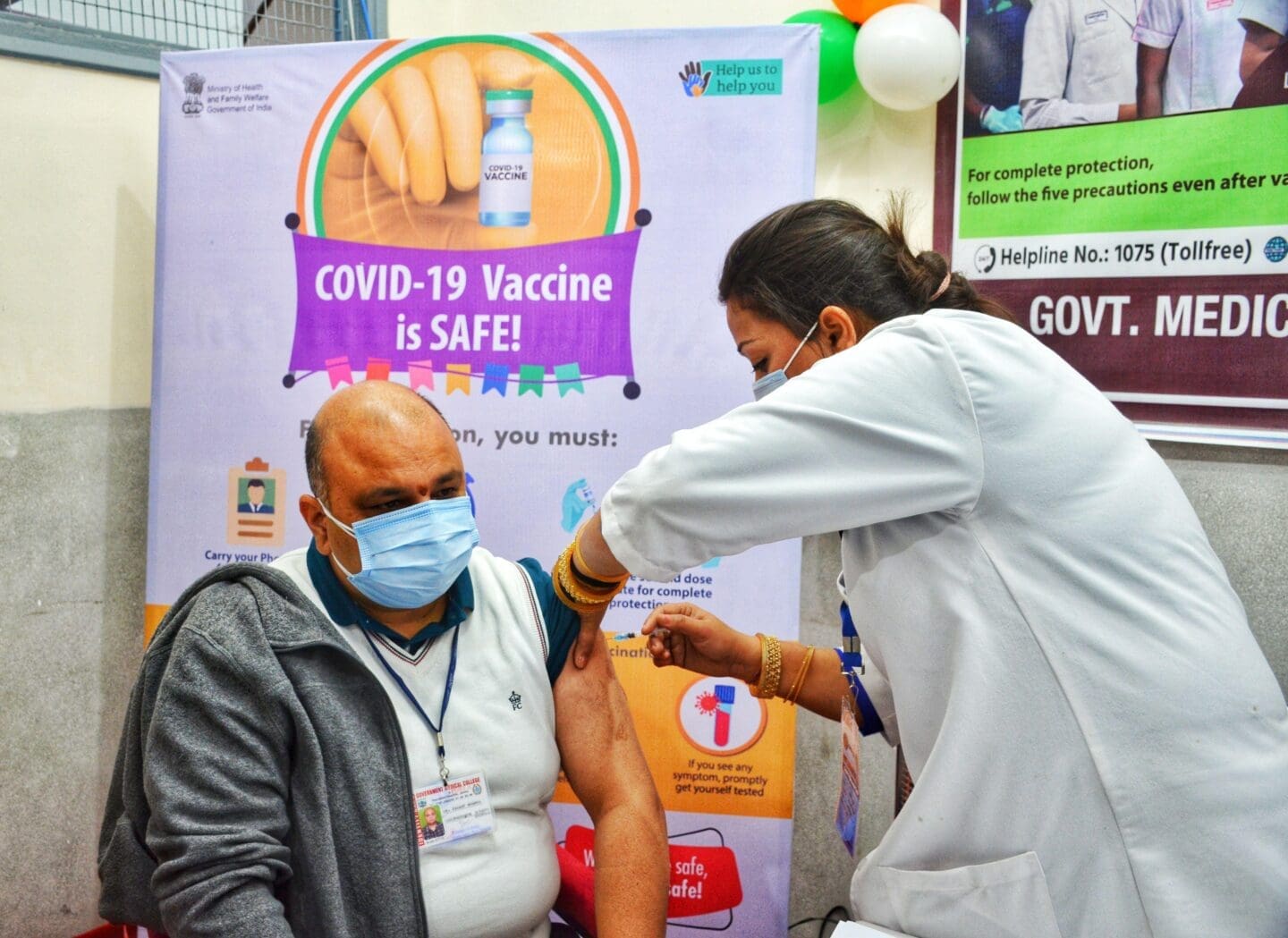Celebrating Over 70 years of collaboration
The Rockefeller Foundation-World Health Organization collaboration goes back to the beginnings of the World Health Organization. The Foundation participated as an observer at the first International Health Conference in June 1946, where World Health Organization’s constitution was signed and the Organization became the first specialized agency of the United Nations.

The Foundation has long been a pioneer in global health, leading its own campaigns to eradicate hookworm disease (1909-1914), malaria (1915), and yellow fever (1920s-1950s), and funding research into vaccine development. These public health initiatives were replicated by World Health Organization to launch the eradication campaigns including against smallpox in 1966.
The Rockefeller Foundation shifted its approach in the 1970s, moving away from campaigns against a single disease or vector, toward multidisciplinary efforts to help developing nations with community health, environmental issues, and other major challenges.
The Rockefeller Foundation and World Health Organization can point to several joint successes in addressing global health challenges through the advancement of medical science, data, and innovation to improve equitable health outcomes for all. Our collaboration has helped many countries overcome their major health challenges and move toward universal health coverage (UHC) – a system in which all people can obtain the health services they need without suffering financial hardship. The Foundation was critical in garnering support for a 2017 UN General Assembly resolution on UHC. More recently, and throughout Covid-19, the collaboration has focused on maintaining essential health services, expanding virus testing capacity, and strengthening genomic surveillance.
In January 2022, The Rockefeller Foundation was admitted as a non-State actor in official relations with the World Health Organization.
Financial support from The Rockefeller Foundation
The Foundation has been a committed and regular supporter of World Health Organization, with contributions totaling more than US$ 25.6 million since 2000. This includes support for World Health Organization’s work on child and adolescent health and development, health research in developing countries, and research and development of normative guidelines on HIV/AIDS, with a focus on Sub-Saharan Africa. Earlier support focused on furthering World Health Organization’s work in health-system development, governance and financing, health statistics and information systems, and protection of the human environment.
Joint priorities for the 2022-23 biennium
Digital health, data, and innovation
World Health Organization’s global strategy on digital health offers a framework to facilitate international collaboration in regulating, benchmarking, and certifying artificial intelligence and digital health medical devices. The Covid-19 pandemic made clear the need for real-time data and evidence from health facilities and communities to guide decision-making and mitigate the impact of disruptions in health systems.
The Rockefeller Foundation and World Health Organization are working hand in hand in select countries to develop a suite of innovative tools and dashboards to support tracking and monitoring of health services through all phases of the pandemic, work that serves to strengthen and inform national response strategies and policies.
The Foundation is helping accelerate the digitalization of World Health Organization guidelines and the digital Covid-19 response, developing public health intelligence tools and creating a digital health clearing house. The clearing house will enable countries to identify digital solutions for Covid-19 and other health domains.
Read More about World Health Organization’s work on digital health, data, and innovation.
Data is what moves us from a panic-driven response to a science-driven one.
Dr. Rajiv J. ShahPresident, The Rockefeller Foundation
Health emergencies preparedness, Covid-19, ACT-A, and genomic surveillance
On September 1st, 2021, the World Health Organization and the Federal Republic of Germany, working in close collaboration with the Foundation, launched the World Health Organization Hub for Pandemic and Epidemic Intelligence in Berlin. The Hub aims to create the largest network of global data to predict, prevent, detect, prepare for, and respond to pandemic and epidemic risks worldwide.
The Foundation is also working with a coalition of organizations to build a Pandemic Prevention Institute that will use data insights to help the world contain any pandemic threat within 100 days of an outbreak.
World Health Organization Director-General Dr. Tedros Adhanom Ghebreyesus has commented on the effort: “Global health preparedness and response will require partnership and collaboration at all levels: local, national, and global. World Health Organization welcomes and looks forward to collaborating with The Rockefeller Foundation’s Pandemic Prevention Institute.”
In 2021, The Rockefeller Foundation called for accelerating national genomic surveillance efforts in the United States, announcing it would invest part of a recent US$ 1 billion “moonshot” commitment to incubate a broad, data-driven platform so the world can better anticipate, visualize, and respond to future outbreaks with pinpoint precision. In line with this effort, The Rockefeller Foundation co-leads the ACT-A Dx Genomic Surveillance working group with World Health Organization, focused on improving genomic surveillance to better control the Covid-19 pandemic and future major events.
The Covid-19 pandemic has been accompanied by a massive “infodemic” (a term for an overabundance of information). In 2021, the Foundation and World Health Organization began a collaboration to improve infodemic management. Both organizations agree on the need to shift gears from tackling misinformation by creating new online spaces on health for people to interact and obtain evidence-based information.
Read More about World Health Organization’s work on Health emergencies preparedness, Covid-19, ACT-A, and genomic surveillance.
Related Updates

The Rockefeller Foundation Injects USD 55 Million to Get Covid-19 Shots From Airports to Arms
Supports low- and middle-income countries’ efforts to overcome demand-side barriers to vaccination to reach at-risk populations NEW YORK, April 27, 2022 | The Rockefeller Foundation announced the launch of the Global Vaccination Initiative, a USD 55 million investment over two years to support country-led efforts to fully vaccinate 90% of the most at-risk populations in […]
More